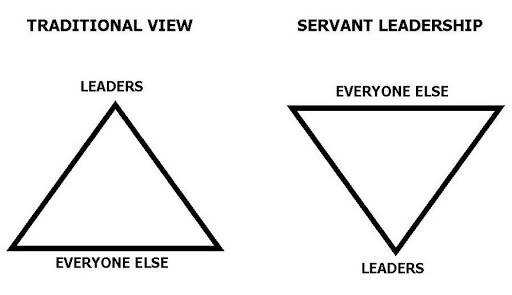Quite often, we like to romanticize talent and intelligence. Shocked when someone has a 34 IQ, we see people who can do something we can’t, and marvel. However, psychologists are making the case that, from a performance standpoint, there is something anterior to talent and intelligence, something more crucial to job performance and organizational health – emotional intelligence or EQ.
Emotional intelligence is the ability to regulate and understand your own and others emotions. EQ is responsible for our ability to empathize with others’ experiences, regulate negative and positive emotions, and manage our relationships. In this day and age of deadly viruses, riots, naked children interrupting zoom call interviews and disruptions of all our habits, regulating our emotions and relationships are more valuable than ever, especially in leadership.
Very few people are either an employer or an employee, but rather, most people exist in subordination to their bosses and have those who are subordinate to them. Even the CEO must answer to the board/customer/investors. We live as both. Employers (structural leaders) exemplify healthy emotional intelligence when they can embody self-regulation to manage the emotions and relationships of themselves and those they lead. The structure of the hierarchy is inverted. The typical leadership model (hierarchy) looks like a regular triangle with, say one leader at the top and two under him. Correspondingly, there are two people under each of them, and so on.
 The term leader inherently implies a social rank in which I, the leader, lead you, the follower. Unfortunately, the currency of hierarchies is power. To lead from power (above) rather than empowering (from below) is the posturing of rank in the social hierarchy. This is categorically Hobbesian and results in relationships conducive to power struggles that give way to toxic environments. When John Doe is worried about covering himself from scorn or being fired, a higher self-orientation is likely. Meaning, employees kick into survival mode. Rather than everyone working towards the benefit of all, everyone strives not to be the weakest link, even if it means tripping your co-workers.
The term leader inherently implies a social rank in which I, the leader, lead you, the follower. Unfortunately, the currency of hierarchies is power. To lead from power (above) rather than empowering (from below) is the posturing of rank in the social hierarchy. This is categorically Hobbesian and results in relationships conducive to power struggles that give way to toxic environments. When John Doe is worried about covering himself from scorn or being fired, a higher self-orientation is likely. Meaning, employees kick into survival mode. Rather than everyone working towards the benefit of all, everyone strives not to be the weakest link, even if it means tripping your co-workers.
The solution is that leadership is service (servant leadership) doesn’t operate in the stereotypical hierarchical format. There is no mere system of expectations in which there is a fear-driven pressure to fulfill these expectations without first being understood. There’s a well known saying that goes, “Nobody cares how much you know until they know how much you care”– a hat tip to the notion that people follow, and work harder, kind leaders, not just talented ones. Emotionally intelligent leaders serve, and service is caring.

When emotional intelligence prompts servant leadership, the power-driven triangle begins to flip. In caring for the individual over and above their role as an employee, an environment of safety and health manifests. Stress responses aren’t always triggered, the healthy culture grows, and group-think dwindle.
The paradox is that the more we care about people and not solely their work, the better the work tends to be. For instance, when writing this article, I made a verbal agreement with Josh Silverstone, the COO of MindTeam Solutions, to have begun around February after I got a hold of my hectic college schedule. It’s now the first day in March, and here I am, typing away.
When I first heard from Josh after the agreed date, the email I received was concerned with my well-being and quality of life, not about the apparent duffer I was vis-a-vis the expectations we set nor any loss of cachet. If the email had been about pressure and expectations, no doubt the article would have been written sooner, but it also, no doubt, would not have quite the intentionality and creativity that I am attempting to put into it today. Furthermore, I am writing these articles remotely, which is indicative of the importance of this style of leadership during the pandemic. A sense of safety and care can fuel an employee and abridge connection during a time when isolation is quite literally law.
It’s important to know that we can’t adequately care and empathize with others until we’ve connected to those areas in our own life. I once heard it put, “It’s like, we can only meet others where we have met ourselves”. If we want to grow our emotional intelligence, it starts with the self. It begins with a growth mindset.
The implementation of emotional intelligence happens through a strict process of self-monitorization and growth. This can jumpstart from a catalyst (trauma, wife/husband, ultimatum, etc.), or it can manifest through daily decisions to monitor, regulate, manage ourselves, and then others. A leader who is focused and can manage themselves emotionally is a leader who is, then and only then, capable of doing the same in others.
Specific advice on growing emotional intelligence through a growth mindset includes 99 percent of the books in the “self-help” section at Barnes and Noble. I’d like to suggest a straightforward trick to help get started– speak from “I”. When you walk into your employee’s office who just botched the big job, or when your kid broke the new TV, start to notice when pronouns replace “I”. We like to do it when we pontificate or get upset (environments where we are vulnerable), and it’s a signal of emotional avoidance. Rather than, “it’s just frustrating that the dishes aren’t done, and you’ve been home all day”, try, “I am frustrated that the dishes aren’t done when I wanted them to”. Speaking from “I” helps to highlight subtle expectations that we place and force us to get in touch, not with the imperfection of the moment but how we feel about it.
 When this ability to understand ourselves and empathize grows, we begin to move from sympathy to empathy towards others! In a theoretical knowledge of empathy (some may know this as sympathy), one can know about someone else’s experience but can be imbued in hypocrisy by not being able to relate to another’s experience/reality (what we know as empathy). Empathy is about understanding, even feeling others’ emotions. Sympathy is contextualizing the emotion; how I feel about what you feel.
When this ability to understand ourselves and empathize grows, we begin to move from sympathy to empathy towards others! In a theoretical knowledge of empathy (some may know this as sympathy), one can know about someone else’s experience but can be imbued in hypocrisy by not being able to relate to another’s experience/reality (what we know as empathy). Empathy is about understanding, even feeling others’ emotions. Sympathy is contextualizing the emotion; how I feel about what you feel.
It takes a few seconds of real thought to notice that making the problem about the one’s voicing the concern will have the same outcome as when done in a smaller environment such as the office. We need to encourage every voice to speak up because it’s a sign that they feel safe enough to voice it. That’s the power of emotional intelligence.
It doesn’t take a day or even a week, but there’s hope if you’re sitting here asking yourself, “what now?”. The next time you find yourself at work, parenting, or in any other situation where the other person pretty much has to do what you say, ask yourself which triangle you’re leading in. Speak from “I” and learn to introspect and lead yourself so that you can empower, before overpowering, others. Your business, your employees, your wallet, and your health will be better for it.
